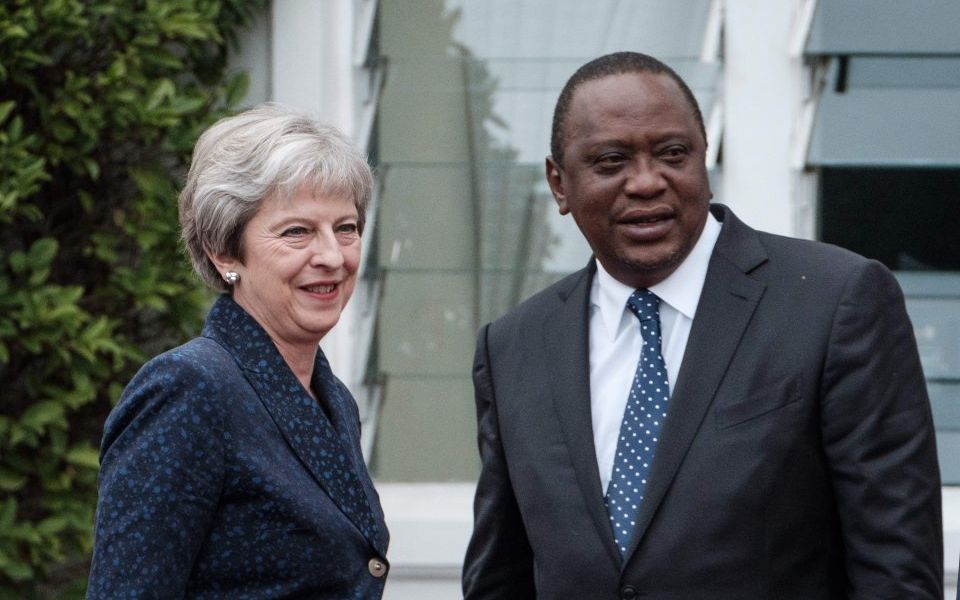Africa deserves more optimism and attention from City investors

In Johannesburg last month, the Prime Minister set a new ambition for the UK to be the largest G7 foreign direct investor in Africa by 2022.
Achieving that ambition won’t be easy, but for UK investors who are prepared to change their attitudes and look beyond the easy choices, there are great opportunities.
I was privileged to accompany Theresa May on her visit as part of her trade delegation. She emphasised the importance of the private sector in economic development and the opportunity for the UK to play a key role.
Read more: Africa needs fintech – but fintech needs Africa more
She announced CDC’s ambition, as the UK’s Development Finance Institution, to invest £3.5bn in Africa before 2022, and talked about the opportunity for at least another £4bn to be mobilised through City of London institutional investors.
Despite today’s growing appetite for sustainable and impact investment, Africa is not benefiting. Capital flows to the continent are falling. Banks are lending less as capital costs increase. Private equity fundraising has declined by almost 50 per cent since 2015. Today, the City of London manages over £8 trillion of assets, but only around one per cent of that is reinvested in Africa.
That’s why CDC and the London Stock Exchange are today hosting a roundtable for institutional investors, regulators, and the government, focusing on investment opportunities.
At CDC, we have been investing in Africa since our foundation 70 years ago. We have backed successful mobile phone companies in Nigeria, solar power firms in Kenya, and large agri-businesses in Malawi and Tanzania. We have had ups and downs, but have consistently earned positive returns.
We want to encourage more investors to join us. But we are also realistic. A step change in private sector funding will only be achieved if investors also believe that they can earn a return that compensates them for the risk they are taking.
In that respect, what we learnt on the trip makes us cautiously optimistic.
Africa is 54 different countries. An increasing number are focused on supporting the private sector in a way that they were not a decade ago.
With the Prime Minister, we visited South Africa, Nigeria, and Kenya and heard from their leaders. They have many problems, but all understand that the private sector has a crucial part to play in solving them. They are determined to create an environment that encourages investment and provides returns for risk takers.
They are looking towards the Asian success story and trying to replicate it.
There is pride in the technology incubators they are building, the entrepreneurs they are nurturing, and the willingness of their well-
educated diaspora to return home. And as the development economist Sir Paul Collier recently highlighted, other countries like Ethiopia, Rwanda, and Ghana are doing even more to encourage successful businesses.
Africa has a population set to double by 2050, and the world’s youngest and fastest growing workforce. It had five of the world’s 10 fastest growing economies last year.
Technological innovation in communications, banking, and renewable power is solving key development challenges and leapfrogging older methods. Social infrastructure is improving. So are health outcomes. Life expectancy has increased and education, especially for women, is getting better.
It can be easy to be negative about Africa. Governance can be improved, many countries are over-reliant on scarce and volatile natural resources, budget deficits are increasing, and government debt, especially to the Chinese, is a problem.
Nobody would recommend a blanket approach to investment. Even at CDC, with our focus on development, some countries are too weak economically or in terms of governance too allow any investment. But evidence on the ground shows things are changing.
These countries deserve a much greater level of attention from our investment community, for the capital they bring and high standards they follow. It’s time for the City’s biggest investors to look to Africa.
Read more: DEBATE: Will new free trade deals offset the potential costs of Brexit?